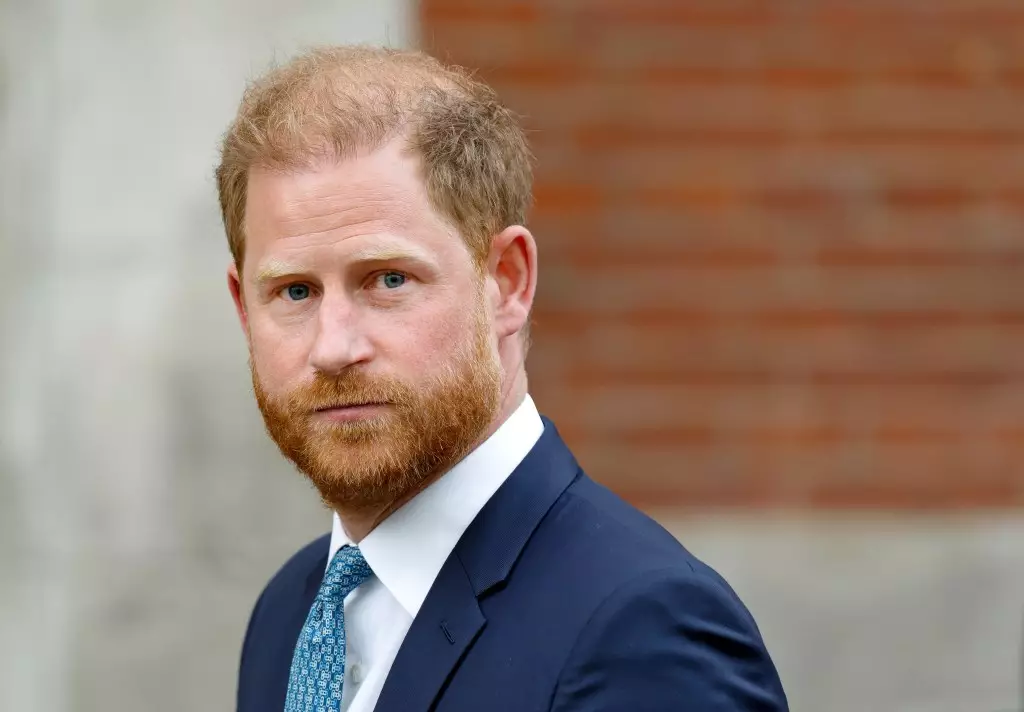In recent weeks, Prince Harry has once again captivated and bewildered the UK media landscape, shining a spotlight on the perplexing nature of royal protocols and personal safety. A week after experiencing defeat in the High Court regarding who should bear the costs for his security, Harry appeared on the BBC, characterizing himself as a victim of what he deemed an “establishment stitch-up.” He underscored the gravity of his situation, insisting that his family’s safety was at stake. His statements resonate with the public, revealing the dichotomy of privilege and vulnerability that often accompanies royal life.
The situation reached a curious climax when news surfaced about Harry’s apparent confusion while searching for a friend in London. Footage showed him knocking on the doors of several townhouses, a seemingly innocuous act laden with implications. Observers noted that the houses he approached were on opposite ends of a half-mile street, raising eyebrows about his lack of awareness. Such peculiar behavior begs the question: how does a member of the royal family find themselves at the mercy of such basic navigational blunders? Beyond mere curiosity, these moments dissect the complexities surrounding Harry’s claims of feeling unsafe—a juxtaposition that challenges our perception of elite privilege.
A Clash of Interests
The rift between Harry and the British establishment has reached alarming depths. Following his departure from royal duties in 2020, he and his wife, Meghan Markle, were assured of personal security arrangements, albeit in a convoluted manner. Queen Elizabeth II’s stipulation that their protection would be ad-hoc sets the stage for a perennial battle—Harry’s legal pursuit against the government’s refusal to fund proper security reflects an ongoing tension not just between him and the state, but also within the royal family itself.
Harry’s insistence that King Charles could intervene to facilitate better security options highlights a critical family dynamic. However, the advisors’ explanation that such intervention would pose a conflict of interest encapsulates the delicate balance between royal duty and familial loyalty. This internal conflict exposes an emotional landscape riddled with unspoken expectations and obligations, especially in a family where tradition dictates roles and responsibilities.
The Public’s Fascination and Distrust
The media blitz surrounding Harry’s court case and subsequent actions escalates in a culture that simultaneously adores and vilifies royal figures. Public perception swings like a pendulum between empathy for his struggle and incredulity at his actions, particularly the image of a prince wandering aimlessly down London streets. The compelling narrative of personal struggle against institutional barriers ignites both sympathy and skepticism, framing Harry’s battle as not merely about security but a larger contention against his identity and role within a lineage steeped in tradition.
Moreover, as the tabloids pour over the details of his camouflaged plight, the increasingly invasive nature of public scrutiny serves as a dissection of celebrity culture. The fascination with intimate details of Harry’s life reflects society’s conflicted understanding of privacy, especially for someone raised in the royal spotlight. His attempts to navigate personal relationships and safety under the burden of relentless critique exemplify the paradox of celebrity—where the desire for authenticity collides relentlessly with an insatiable public appetite for sensationalism.
Royal Responsibilities and Individual Rights
In this age of accountability, the royal family must reconcile their historic responsibilities with the modern expectation of transparency and individual rights. Harry’s case serves as a glaring illustration of this struggle. As he grapples with his place in the royal hierarchy while advocating for safety, we must question whether royal protocols are designed to protect their interests or genuinely safeguard their wellbeing.
The challenges Harry faces resonate beyond his familial narrative—they illuminate the essential tensions within modern institutions. The need for adequate security juxtaposed with the expectations of royal detachment raises profound questions about the interpretation of duty, safety, and personal agency. Harry’s plight is emblematic of broader societal challenges: how do we balance privilege with the fundamental right to safety, both as public figures and private individuals? The answers may lay uncomfortably close to home, compelling us to rethink the essence of modern monarchy and its duties within contemporary society.

